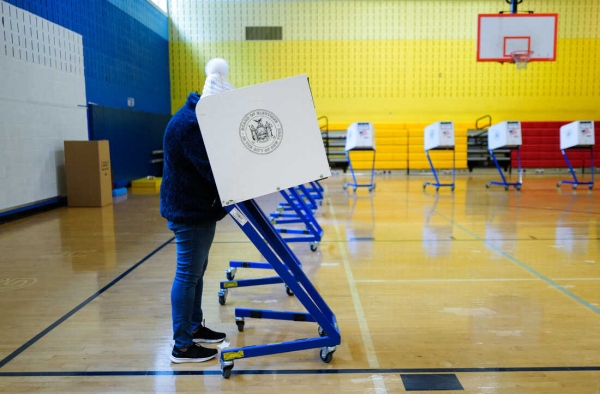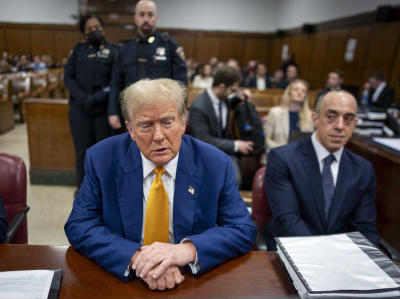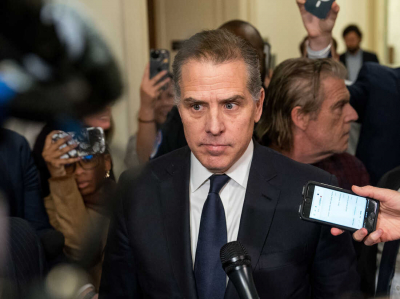
Inequities Persist: Federal Grants for Elections Fall Short, Leaving Voting Officials Struggling
As voters cast their ballots at a bustling polling station in Manhattan during New York's presidential primary on April 2, the scene belied a deeper issue plaguing the American electoral system: chronic underfunding. Regardless of political affiliation, voting officials unanimously decry the insufficient resources allocated to elections nationwide.
In Kentucky, Republican Secretary of State Michael Adams lamented the state's neglect of electoral support, revealing that funding levels had stagnated since the 1980s, leaving crucial equipment on the verge of decertification and impeding essential functions like recounts. While precise figures on annual democracy expenditure vary, a recent study by MIT and the American Enterprise Institute uncovered a stark reality: local governments allocate comparable funds for voting support as they do for parking infrastructure maintenance.
Amidst this backdrop, the U.S. Department of Homeland Security's decision to earmark a portion of a multibillion-dollar grant program for election security garnered widespread applause within the voting community, albeit acknowledging it was merely a fraction of the requisite amount. Renowned elections experts Larry Norden and Derek Tisler hailed the move as a significant step towards fortifying democracy and acknowledging the peril posed by physical threats to election officials.
However, NPR's investigation reveals a disheartening reality: the disbursement of these grants often deviated from intended objectives. Numerous election officials and experts disclosed to NPR that a significant portion of the allocated funds failed to bolster voting infrastructure or were expended without strategic foresight, particularly alarming amidst a fiercely contested presidential election that has left officials apprehensive about their safety.
The potential impact of this funding cannot be overstated. It could have been pivotal in securing basic necessities like keycard access or bulletproof glass to safeguard voting integrity," remarked Larry Norden in an NPR interview. "Regrettably, many election officials across the country feel let down, unable to acquire what they truly need.
Flaws in Funding: Challenges Surrounding Federal Grants for Election Security
Every year, funds flow through an annual grant program managed by the Federal Emergency Management Agency (FEMA), aimed at aiding state and local governments in preempting and mitigating terrorism and disasters. In a bid to refine the allocation process, the Department of Homeland Security (DHS) delineates priority sectors, with election security becoming a designated focus area in 2023. With DHS allocating over $2 billion in preparedness grants that year, a minimum of $30.9 million was earmarked for enhancing election security.
However, the distribution of these funds raises questions about their efficacy. Reports indicate a substantial portion did not reach its intended targets. A state election official, speaking anonymously to NPR, revealed a lack of consultation prior to the allocation of election security funds. Instead, they were briefed on expenditure plans just days before the grant application deadline, leaving scant room for input.
During discussions, the official was alarmed to discover that a significant sum was allocated for cybersecurity risk assessments, despite such services being readily available from the federal government at no cost. Despite highlighting this redundancy, attempts to revise the budget were rebuffed, citing timing constraints.
Government sources cited by NPR underscored a fundamental flaw in the grant rollout: the delayed announcement of election security requirements. Traditionally, localities commence drafting their DHS grant applications nearly a year before the spring deadline. However, the mandate for election security emerged late in February, mere months before applications were due.
FEMA officials attribute this delay to the necessity of awaiting Congress's determination of grant amounts, underscoring the bureaucratic complexities that impede timely guidance issuance.
The narrative underscores systemic challenges in ensuring efficient and equitable allocation of vital resources, highlighting the need for enhanced coordination and transparency in grant distribution processes.
Grant Struggles: Challenges in Aligning Funds with Election Security Needs
The constricted timeline compounded the issue of grant applicants lacking established ties with local or state election administrators, as highlighted by Kim Wyman, a former local election official who collaborated on election security matters with DHS until the previous year. Wyman, now a senior fellow at the Bipartisan Policy Center, emphasized the historical focus of these grants on emergency management and law enforcement, leaving election officials ill-prepared for the sudden influx of unfamiliar procedures and deadlines.
An election official, speaking anonymously to NPR, revealed that applicants in their state attempted to meet the election security requirement without fundamentally altering expenditure patterns. For instance, a purported bomb training exercise, ostensibly intended for election security, failed to involve any election officials, raising suspicions of misdirection of funds towards policing.
Although FEMA remained unresponsive to NPR inquiries regarding the grants, it's evident the agency recognizes the issue. A Government Accountability Office (GAO) report earlier this year highlighted the challenges in implementing the new election security mandate. In one instance, a locality fulfilled its obligation by procuring a solitary security barrier, purportedly earmarked solely for election security purposes.
The GAO report, based on discussions with 16 federal officials overseeing grant distribution, revealed that eight encountered difficulties fulfilling the election security requirement. Reasons cited included a lack of subject matter expertise and the perceived absence of regional election security needs, a stance met with incredulity by those familiar with the grant process.
That's a preposterous response," remarked the anonymous official regarding the alleged absence of regional election security needs. "It suggests a lack of proactive engagement and a passive approach to addressing critical issues.
Anticipated Changes: Optimism and Challenges Surrounding Election Security Grants
As a voter marks their primary ballot at a bustling polling station in Atlanta on March 12, the backdrop of DHS's recent announcement looms large: this year's preparedness grant total surpasses $1.8 billion, with a mandated allocation of approximately $27.8 million for election security. Amidst this news, officials and experts interviewed by NPR expressed cautious optimism, hopeful for greater involvement of voting officials in the allocation process.
According to Larry Norden of the Brennan Center for Justice, past shortcomings in inclusion may give way to a smoother process this time, with heightened awareness of the necessity to involve election officials from the outset. However, an election official speaking on background to NPR underscored the variability in engagement efforts across states, casting doubt on the uniformity of improvement.
The grant rollout underscores a broader challenge facing local election officials: the lack of clarity regarding federal funding timing and amounts. Unlike other sectors with predictable funding streams, election officials face uncertainty, with Congress allocating anywhere from over $400 million to zero dollars in the past six years, unrelated to DHS grants. In 2024, a modest $55 million was earmarked for elections, a fraction of what experts deem necessary annually.
Larry Norden advocates for consistent funding as a remedy, providing stability for election officials to address emerging challenges effectively. While the $30 million DHS grant may seem modest, its potential consistency offers a glimmer of hope for better planning and preparedness.
As election officials navigate these challenges, the prospect of a more predictable funding landscape offers a ray of hope in an otherwise uncertain terrain.
In conclusion, while strides are being made in enhancing election security funding, challenges persist in ensuring equitable distribution and predictability. The recent allocation of DHS grants underscores the imperative for greater collaboration between federal agencies and local election officials, fostering transparency and inclusivity in the process. As we navigate the complexities of safeguarding democracy, the call for consistent and sufficient funding remains paramount, providing election officials with the resources needed to confront evolving threats and uphold the integrity of our electoral process.





